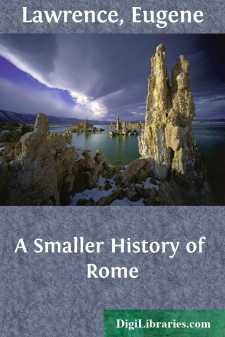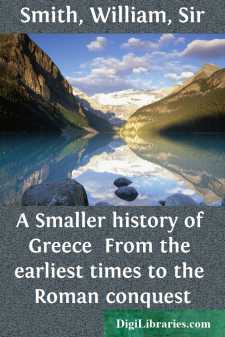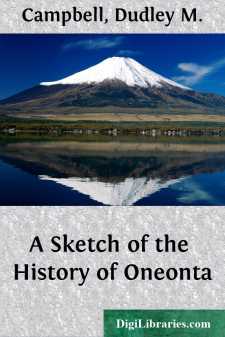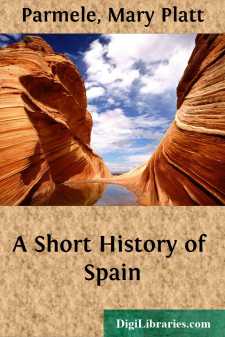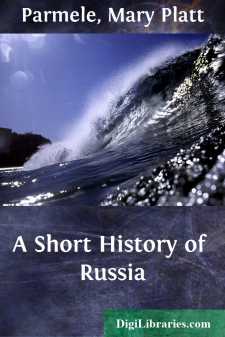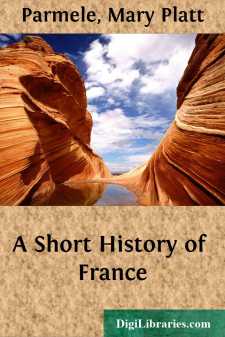History
- Africa 30
- Americas (North Central South West Indies) 50
- Ancient 68
- Asia 58
- Australia & New Zealand 8
- Canada 41
- Caribbean & West Indies 1
- Civilization 20
- Eastern Europe 12
- Europe 310
- Expeditions & Discoveries 60
- General 77
- Historical Geography 1
- Jewish 9
- Latin America 3
- Medieval 8
- Middle East 13
- Military 248
- Revolutionary 8
- Study & Teaching 5
- United States 353
- Western Europe 56
- World 13
History Books
Sort by:
by:
Eugene Lawrence
CHAPTER I. GEOGRAPHY OF ITALY—EARLY INHABITANTS. Italy is the central one of the three great peninsulas which project from the south of Europe into the Mediterranean Sea. It is bounded on the north by the chain of the Alps, which form a natural barrier, and it is surrounded on other sides by the sea. Its shores are washed on the west by the "Mare Inferum," or the Lower Sea, and on the east by...
more...
by:
William Smith
GEOGRAPHY OF GREECE. Greece is the southern portion of a great peninsula of Europe, washed on three sides by the Mediterranean Sea. It is bounded on the north by the Cambunian mountains, which separate it from Macedonia. It extends from the fortieth degree of latitude to the thirty-sixth, its greatest length being not more than 250 English miles, and its greatest breadth only 180. Its surface is...
more...
by:
Osmond Tiffany
Mr. President: The events of the American Revolution are so nearly connected with our own times, that the actors in that great struggle seem yet to be to us as living men. We open the portal of the past century, and are with those who once like ourselves, breathed and thought, and who now, lie not silent or forgotten in the tomb. Their deeds live in our memory; their examples are glorious as of old:...
more...
CHAPTER I. The territory comprised within the present boundaries of the town of Oneonta, previous to the war of the Revolution, was little known except as the scene of many a sanguinary conflict between different Indian tribes which contended with each other for its possession. The Delawares, whose home was on the river bearing their name, had been in peaceful possession of the upper Susquehanna valley...
more...
CHAPTER I MOBILIZATION AND MOVE TO FRANCE The Division mobilized with its Headquarters at Cork--two brigades in Ireland, namely, the 16th Infantry Brigade at Fermoy, and the 17th Infantry Brigade at Cork, and one Infantry Brigade--the 18th--at Lichfield. Divisional troops mobilized in Ireland. The order for mobilization was received at 10 p.m. on the 4th August 1914. On the 15th August units mobilized...
more...
CHAPTER I. No name is more fraught with picturesque and romantic interest than that of the "Spanish Peninsula." After finishing this rare bit of handiwork nature seems to have thrown up a great ragged wall, stretching from sea to sea, to protect it; and the Pyrenees have stood for ages a frowning barrier, descending toward France on the northern side from gradually decreasing heights—but on...
more...
by:
Andrew Lang
CHAPTER I. SCOTLAND AND THE ROMANS. If we could see in a magic mirror the country now called Scotland as it was when the Romans under Agricola (81 A.D.) crossed the Border, we should recognise little but the familiar hills and mountains. The rivers, in the plains, overflowed their present banks; dense forests of oak and pine, haunted by great red deer, elks, and boars, covered land that has long...
more...
CHAPTER I The topography of a country is to some extent a prophecy of its future. Had there been no Mississippi coursing for three thousand miles through the North American Continent, no Ohio and Missouri bisecting it from east to west, no great inland seas indenting and watering it, no fertile prairies stretching across its vast areas, how different would have been the history of our own land. Russia...
more...
eorge Washington, the Father of his Country, is equally the Father of Pittsburgh, for he came thither in November, 1753, and established the location of the now imperial city by choosing it as the best place for a fort. Washington was then twenty-one years old. He had by that time written his precocious one hundred and ten maxims of civility and good behavior; had declined to be a midshipman in the...
more...
CHAPTER I. One of the greatest achievements of modern research is the discovery of a key by which we may determine the kinship of nations. What we used to conjecture, we now know. An identity in the structural form of language establishes with scientific certitude that however diverse their character and civilizations, Russian, German, Englishman, Frenchman, Spaniard, are all but branches from the same...
more...


